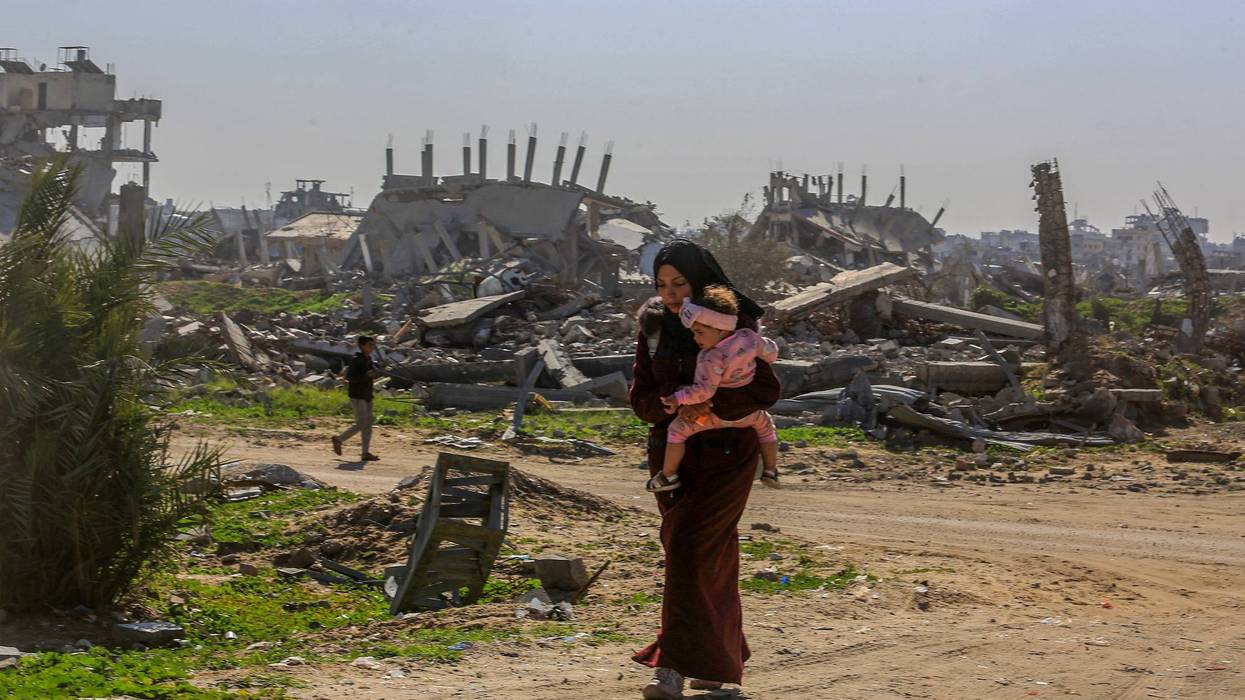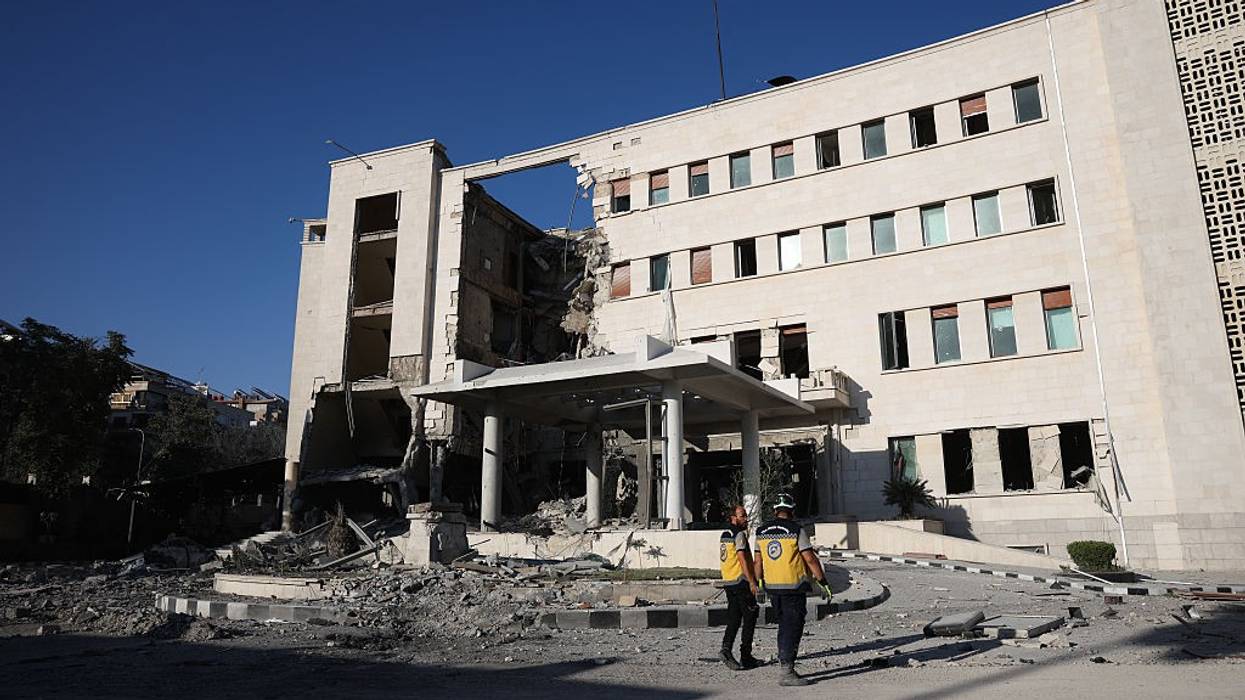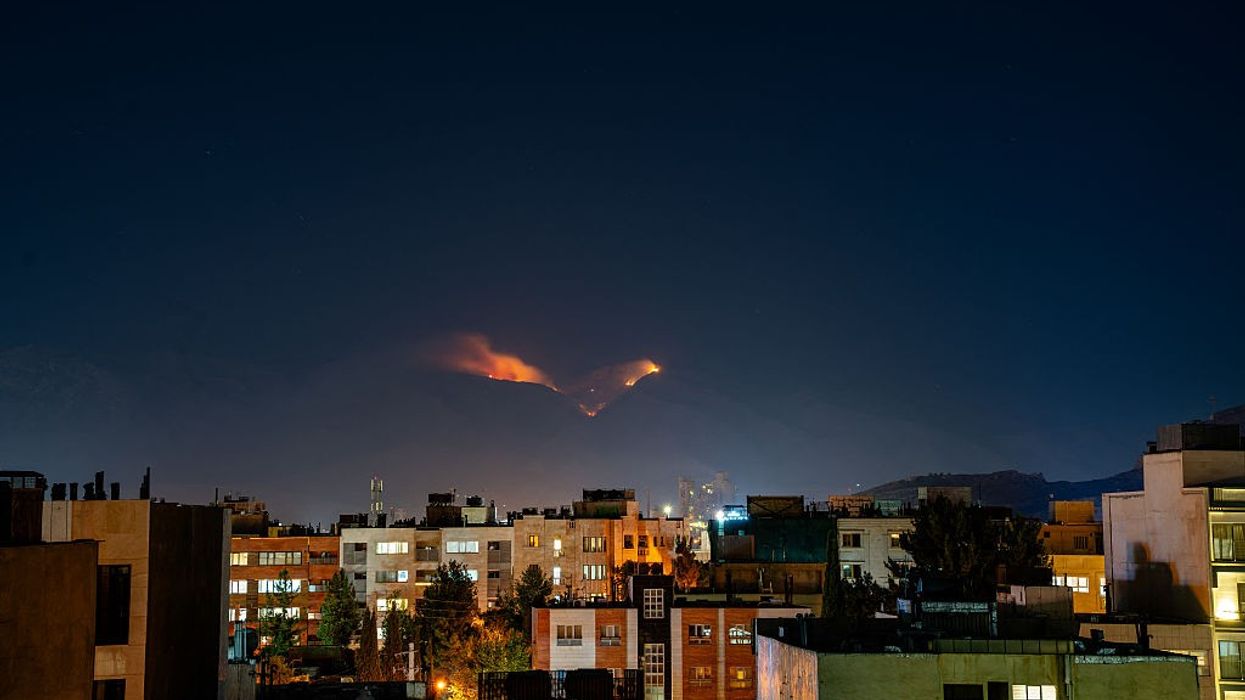Yet after the U.S. entered the fray and attacked three underground facilities in Iran on June 21, Israel has expanded its goal to not only destroy Iran’s nuclear facilities but also to eliminate its military capability, including its ballistic missile arsenal. Apparently, when Israel attacked Iran unprovoked earlier in June, Iran should not have retaliated but rather accepted what the new rising hegemon had in store.
Throughout Iran’s modern history, it has never started a war, unlike Israel, the U.S. and Arab countries, such as Egypt and Iraq.
Netanyahu thanked U.S. President Donald Trump, the so-called anti-interventionist (wasn’t that W.’s stance in the 2000 campaign, too?) for doing Israel’s dirty work and invoked the Reagan “peace through strength” adage.
Yet, beside Israel’s keeping the non-Jewish population under its control without any rights, partially in an outdoor prison and partially on land that can be confiscated by settlers at any minute, before Israel conducted more targeted strikes in October 2024, there was peace (though uneasy) between the two countries. The only related semi-proxy conflicts between the two were in 2006, when Hezbollah fought Israel, and after October 7. In each case, although largely armed by Iran, Hezbollah made its decisions according to its own interests; in 2006, Hezbollah fought Israeli occupation of southern Lebanon after killing three Israeli soldiers and kidnapping two to gain the release of Lebanese prisoners and, more recently, against the Israeli genocide in Gaza.
Throughout Iran’s modern history, it has never started a war, unlike Israel, the U.S., and Arab countries, such as Egypt and Iraq. While Iran may have fiery, anti-imperialist rhetoric that, under President Mahmoud Ahmadinejad, verged on the antisemitic, and an unorthodox defensive strategy of arming non-state actors, such as Hezbollah and the Houthis, it is a rational state actor concerned with its own regime survival that does not seek international conflict. Even when Hamas’ political leader Ismail Haniyeh was assassinated in Tehran in July 2024 or in response to other unprovoked Israeli attacks in April and October 2024, Iran offered only minimal responses to avoid escalation.
The “peace” that Netanyahu claims he wants through strength existed between the countries before Israel’s attacks in 2024. Rather than deescalating and solving its problems with all of its neighbors in one fell swoop by ending the Gaza genocide and offering the Palestinians a shred of rights, Israel chose more illegal violence. Knowing that the most spineless and most beholden U.S. government—to the anti-peace, pro-Israel Evangelical and Zionist lobbies—would back it, Israel determined the time was right to pursue its advantage to the utmost. It would pursue greater control of the Middle East during the U.S. imperial pullback. This would allow it to create Greater Israel, by expanding its borders permanently into Syria and Lebanon, and complete the second Nakba by dispossessing remaining Palestinians from their homeland. Israel’s strategy of regional hegemony looks closer to the 13th-century invasions of much of Eurasia by the Mongols than a nation-state doing “forces of civilization” a favor.
It may be strength, but it is the antithesis of peace. Unless peace means butchered children, shredded international treaties, destroyed TV news buildings, and mass famine.
Yet whatever the genocidal leader and his U.S. wannabe dictator lackey say, it may increase their popularity at home. Unfortunately, both Israel and the U.S. have a martial culture that creates heroes out of those who perpetrate out-group mass violence. Each country has been fed “patriotic” versions of their history in which their nations could do no wrong in the past, nor, hence, in the present. And most politicians, even many Democrats, follow, wagging their tails.
Although, of course, now the tail has wagged the dog.




